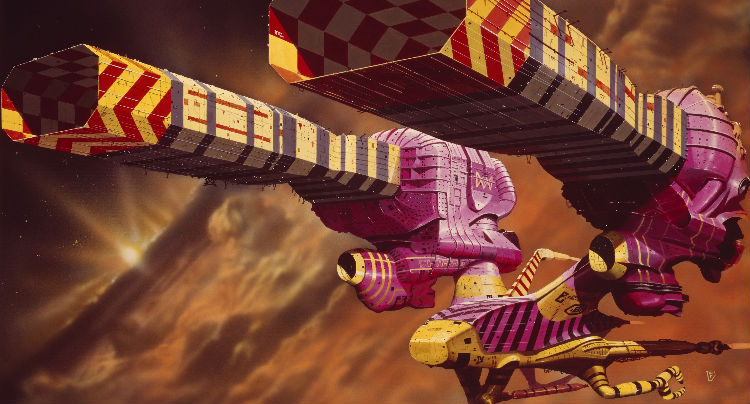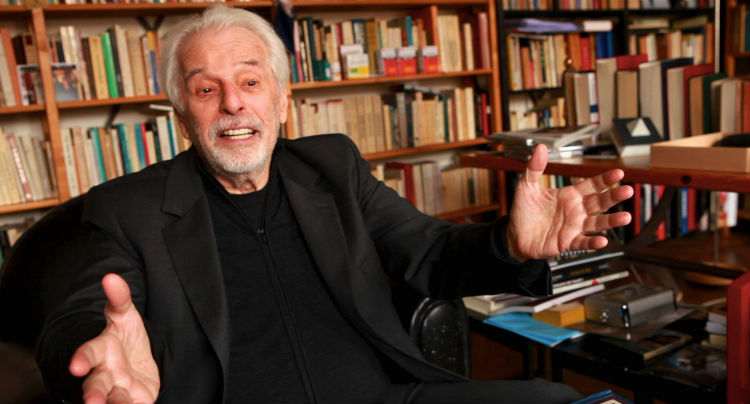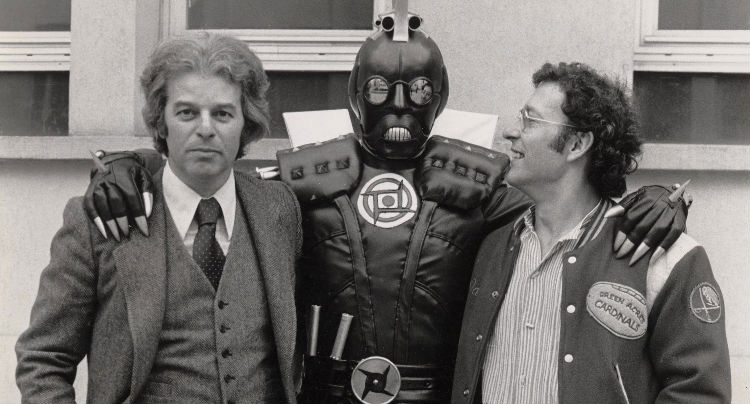
A straightforward doc about the 'greatest movie never made' and the mad man behind it all.

A straightforward doc about the 'greatest movie never made' and the mad man behind it all.
In Jodorowsky’s Dune, a documentary about Alejandro Jodorowsky’s failed 1970’s adaptation of the acclaimed sci-fi novel by Frank Herbert, the Chilean-born director–essentially a talking head throughout the film–is more captivating in his musings than most actors are in sweeping, Oscar-bait dramas. It’s delightful to watch Jodorowsky, perpetually impassioned, chronicling the history of the impossibly ambitious production of his mind-altering magnum opus, which ultimately crumbled in his hands and never saw the light of day.
Jodorowsky’s dreams were as big as anybody’s. With Dune, he wanted sober audiences to feel the exact effects of LSD. He wanted to hurtle us through the cosmos in one long shot, blowing Orson Wells’ opening tracking shot in Touch of Evil out of the water. He wanted to open the minds of young people to new frontiers previously unreachable and spark an intellectual revolution. He wanted to fill the screen with gigantic sci-fi creatures that would be hard to film by today’s standards.
He equated his adaptation of Dune to “the coming of a god.”

Egotistical? Maybe. Crazy? Many thought as much. But his passion and self-belief is undeniably fascinating. Despite Herbert’s novel being considered unfilmable at the time, Jodorowsky (now 85 years of age) was never swayed in his desire to bring his vision to light. (In an endearing moment that speaks to Jodorowsky’s character, he admits with a giggle to not having read the book prior to embarking on his filmic quest.) But he needed a team of people just as kooky as him to get the project off the ground. “Spiritual warriors” he called them. French producer Michel Seydoux, a fan of Jodorowsky’s films, particularly the experimental The Holy Mountain, was his primary confidant and the man who got the ball rolling, financially.
Subsequently Jodorowsky wrote the script (in a castle in France, of course), employed the design talents of H.R. Giger comic book artist Jean Giraud (better known as “Mœbius”) to create the look of the film, got Pink Floyd to do the music (after scolding them for eating cheeseburgers at their meeting), and somehow managed to wrangle Salvador Dali, Mick Jagger, and Orson Wells himself for his cast. This was clearly destined to be the most delightfully nutty sci-fi movie of all time.
With the help of Mœbius, Jodorowsky created a beautiful book comprised of gaudy, elaborate costume designs, detailed storyboards, and gorgeous concept art, that essentially laid out his vision of the film in its entirety. These books, of which there are only a handful in existence, were shopped around to studios in lieu of a traditional movie pitch. Despite the impressive presentation of these coffee table film bibles, none of the studios bit, spelling Dune‘s doom.
Is the legend of “the greatest movie never made” a tragedy or triumph? Perhaps it’s both, but Jodorowsky’s Dune director Frank Pavich leans toward the latter. The documentary focuses on Jodorowsky’s brilliance and brio, with his interview segments stealing the show. He looks fondly on the time he spent developing his failed film with his spirit warrior partners. Only once does he shed his smile, letting out a bit of rage as he curses the stupidity of the studio execs who didn’t take a chance on Dune. The cheerful audacity of some of Jodorowsky’s philosophical statements are shocking, especially one in which he likens the creative process to rape.

Also interesting are the sections of Pavich’s film that concern the “what if?” factor. If Jodorowsky was able to pull Dune off, would Star Wars have failed to launch? Pavich animates some of Mœbius’ sketches to give us a taste of what the film would have looked like, a tease that will likely have geeks around the world salivating in their seats. Despite the weirdness and creative ambition of Jodorowsky’s project, Pavich’s storytelling is mostly conventional, laying everything out in a straight line, clean and clear as crystal, a style that doesn’t reflect the giant ambition of its subject matter, but makes sure that Jodorowsky’s strange ideologies and expansive ideas are digestible for wide audiences.
Jodorowsky’s Dune is a hopeful documentary, pointing to the fact that Jodorowsky’s unfilmed masterpiece will never be dead in the water, so long as his “how-to” book exists. Jodorowsky himself states in the film that he would be happy for another director to pick up where he left off and bring his creation to life, even if it happens after his passing. In the doc, Drive director Nicolas Winding Refn recalls an unforgettable night in which Jodorowsky (a close friend and mentor of his) personally walked him through his famous Dune book page by page, making him one of the only people in the world to have ever “seen”, in a way, Jodorowsky’s masterpiece. Refn seems like a worthy candidate to me…